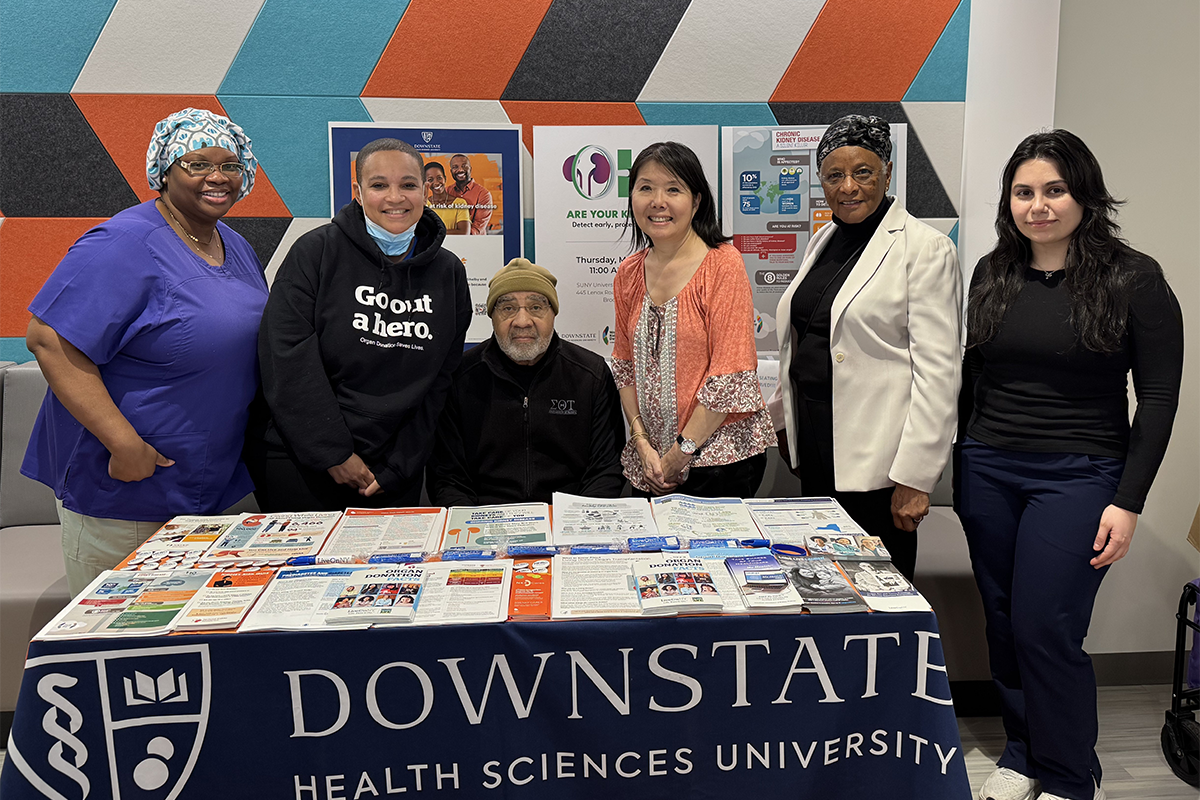Say “Yes” to Organ Donation
By Office of the President | May 6, 2025

In March, Governor Kathy Hochul signed a new law, supported by LiveOnNY, to expand public education about organ donation across New York State. According to the New York State Donor Registry, nearly 10,000 New Yorkers are waiting for a transplant. One organ donor can save up to eight lives and improve up to 75 more through tissue donation. These figures represent individuals across the State who require critical care.
Downstate launched a campus initiative during National Donate Life Month to raise awareness about the importance of organ donation. Students, faculty, and staff students worked together to educate others on the impact being an organ donor can make.
Betty Jung, RN, and Sarah Marshall, DNP, from the Center for Community Health Promotion and Wellness, led the campaign with key support from Al Ryan Maduramente, RN, of Transplant Services; Shani Audain, PMP, of LiveOnNY; and Rosemarie Waite, RN, of Parkside Dialysis.
Deena Asghar, an MPH student, and Vicente Marshall staffed a table near the Cafeteria Lounge, engaging with visitors and sharing firsthand accounts that underscored the life-changing potential of registering as a donor.
Downstate’s kidney transplant program began in 1965, led by Samuel L. Kountz, M.D., and Dr. Eli Friedman, M.D., who established one of the region’s leading centers for transplantation. In 1966, the team completed New York State’s first successful dual kidney transplant, demonstrating that organs once considered unusable could still be viable for saving lives. The program continues to serve as Brooklyn’s only kidney transplant center.
Under the leadership of Sumanth C. Suresh, M.D., FACS, Chief of Transplant Surgery and Surgical Oncology Surgery, the Division of Transplantation emphasizes advancements in surgical techniques, broader access to care, and better outcomes. Living donor transplants offer more prolonged graft survival, which is especially important in communities facing high rates of kidney disease and fewer healthcare resources. Increased access to these procedures is particularly vital for African American, Hispanic, and Pacific Islander patients who face elevated risks of end-stage renal disease.
The Brooklyn Kidney Club meets monthly to connect transplant recipients, individuals on the waiting list, and living donors. Each session provides space for participants to discuss post-surgery experiences, including symptom management and personal challenges that extend beyond clinical care.
The first meeting of 2025, titled “What to Expect After Kidney Transplant,” was held earlier this year and led by transplant coordinators Amarachukwu Egbujor, DNP, FNP-C, and Yonette Parks, RN, who offered guidance and support to those navigating the recovery process.
Downstate remains committed to improving outcomes and expanding access to care. For information about kidney donation or ways to support it, contact the Division of Transplant Services at 718-270-3168 or 718-270-3169.